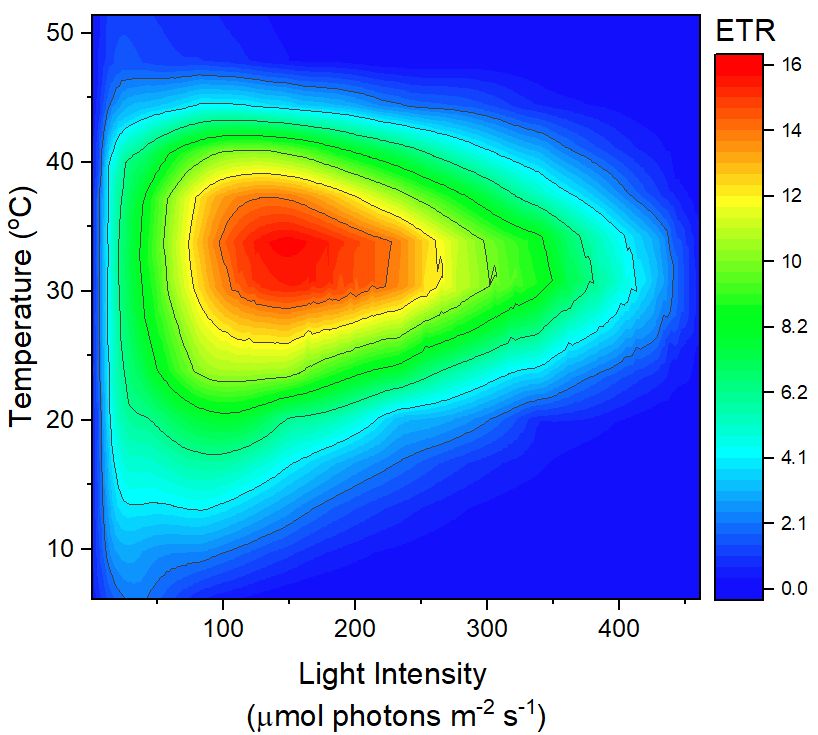IMAGING-PAM
Version:
Chlorophyll Fluorescence System
Application for IMAGING-PAM
Development of an AI-based, energy-optimized illumination system for urban indoor plant cultivation
WALZ in collaboration with the Federal Agency for Agriculture and Food (BLE), INUGA, the Fraunhofer UMSICHT, University of Applied Sciences Osnabrück and Computomics
The challenges faced by agricultural systems are increasing globally. Current studies indicate that reducing negative environmental impacts while maintaining yield and striving for higher product quality pose significant challenges. The central goal of LightSaverAI is to establish the foundation for an intelligent production system for indoor farming in urban spaces. This system measures chlorophyll fluorescence (ChlFl) as an indicator of photosynthetic rate, along with various environmental parameters, and analyzes them using AI approaches. As a result, the real-time light requirements of plants are assessed, and an LED illumination module is adjusted through a feedback loop to provide continuous illumination tailored to growth phases and environmental conditions. Leveraging LED technology, this system achieves maximum photosynthetic rates with minimal energy consumption.
Learn more about: INUGA: LightSaverAI
Key features of the system
- Customized, resource-efficient plant illumination
- Capture and AI-based analysis of chlorophyll fluorescence and environmental parameters
- Expected outcomes and applications:
Software for improved plant breeding and monitoring, leading to resource savings in indoor farming
Enhanced use of image and data processing in horticulture
Transferability to other production sectors (vegetable cultivation, spice and tea production, pharmaceutical industry)
Project participants:
- Fraunhofer UMSICHT
- Hochschule Osnabrück (Osnabrück University of Applied Sciences)
- Computomics GmbH
- Heinz Walz GmbH (Associate)
Project details:
- Coordinator: Dr.-Ing. Dennis Schlehuber
- Duration: April 15, 2022, to April 14, 2025
WALZ is proud to introduce the Phenoplate, an innovative tool designed to uncover the intricate relationship between photosynthesis, light, and temperature in real time. With its seamless integration of the MAXI-IMAGING-PAM and a thermocycler, the Phenoplate enables high-throughput measurements and dynamic control of temperature, providing invaluable insights into how various organisms respond to fluctuating environmental conditions.
For a deeper look into this innovative approach, please refer to our technical documentation.
Phenoplate Key Features:
- Precision Control of Temperature and Light: Simultaneously measure Photosystem II efficiency (Y(II)) and non-photochemical quenching (NPQ) while controlling temperature changes rapidly, enabling studies across multiple temperature gradients.
- High-Throughput Capability: The Phenoplate’s ability to handle 96-well plates allows for the simultaneous assessment of numerous replicates, ensuring robust, reproducible data. Whether you're studying microalgae, corals, or terrestrial plants, the Phenoplate’s flexibility makes it an invaluable tool for diverse biological research.
- Applications in Multiple Research Areas: From studying coral bleaching stress responses to examining how temperature and chemical gradients affect photosynthetic processes in microalgae, the Phenoplate provides a unique platform to capture key data for understanding photosynthesis in dynamic environments.

A Game Changer for Photosynthesis Research:
The Phenoplate isn’t just an instrument; it’s a powerful research tool designed to unlock the full potential of your experiments. By combining controlled environments with high-throughput capacity, the Phenoplate offers a precise and solution for researchers studying the effects of environmental stress on photosynthetic organisms.
The innovation was developed by scientists from the Climate Change Cluster at University of Technology Sydney:

Andrei Herdean, Hadley England and Lilian Hoch